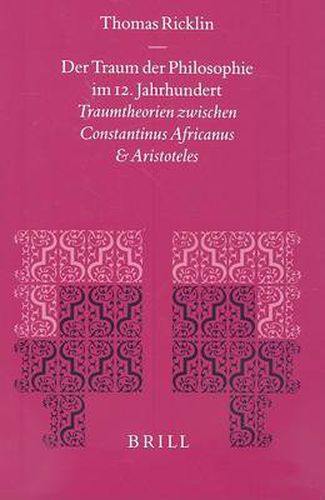Readings Newsletter
Become a Readings Member to make your shopping experience even easier.
Sign in or sign up for free!
You’re not far away from qualifying for FREE standard shipping within Australia
You’ve qualified for FREE standard shipping within Australia
The cart is loading…






From the example provided by theories on dreams, this study undertakes a reconstruction of the philosophical revolution embodied in the so-called 12th-century renaissance which, from its origins in Arabic medical scholarship, led to the appropriation of the new Aristotle. An analysis of theories at the beginning of the 12th century leads to an examination of William of Conche’s dream theories, first proposed in his Macrobius Commentary, and which were later to find general acceptance. The intellectual context leading to the translation in Byzantium of Aristotle’s theories on dreams - together with its Arabic tradition - in Western-Latin scholarship is examined through its first users: Alfred from Sareshel, David from Dinant, and Radulfus de Longo Campo. This work is intended for those interested in the history of medieval philosophy and theology, in the history of mentalites and literature, and in the Latin philologists.
$9.00 standard shipping within Australia
FREE standard shipping within Australia for orders over $100.00
Express & International shipping calculated at checkout
From the example provided by theories on dreams, this study undertakes a reconstruction of the philosophical revolution embodied in the so-called 12th-century renaissance which, from its origins in Arabic medical scholarship, led to the appropriation of the new Aristotle. An analysis of theories at the beginning of the 12th century leads to an examination of William of Conche’s dream theories, first proposed in his Macrobius Commentary, and which were later to find general acceptance. The intellectual context leading to the translation in Byzantium of Aristotle’s theories on dreams - together with its Arabic tradition - in Western-Latin scholarship is examined through its first users: Alfred from Sareshel, David from Dinant, and Radulfus de Longo Campo. This work is intended for those interested in the history of medieval philosophy and theology, in the history of mentalites and literature, and in the Latin philologists.